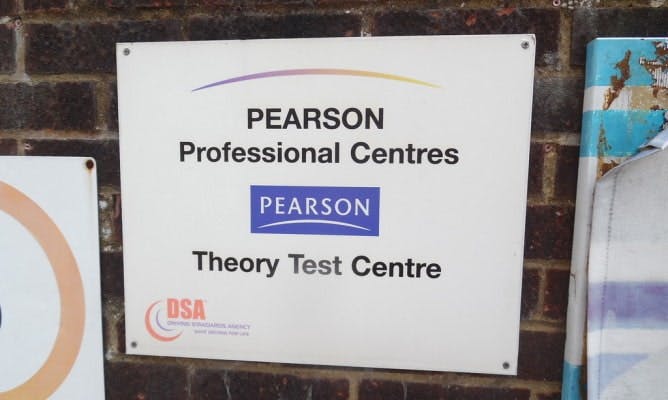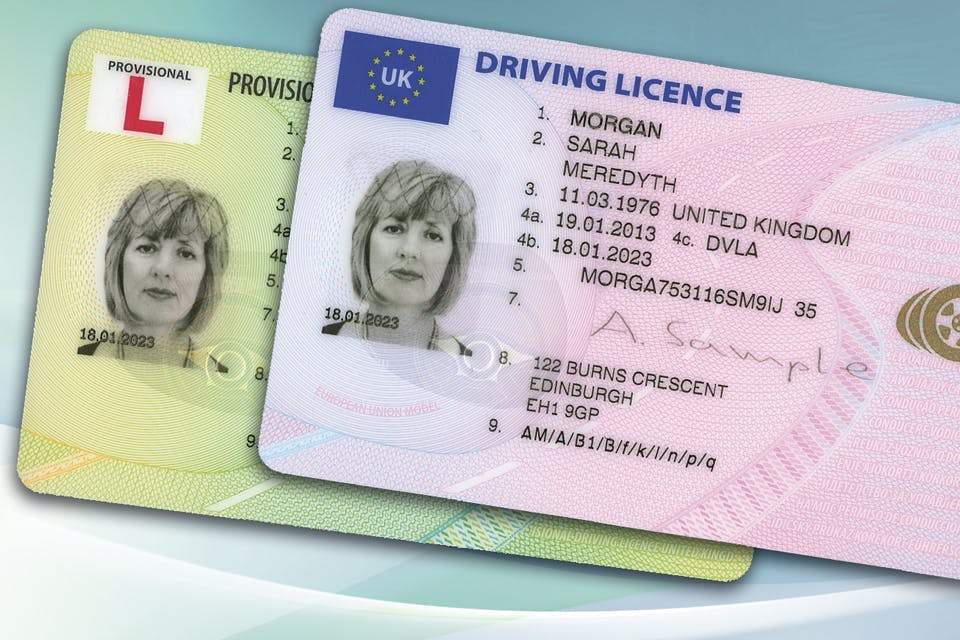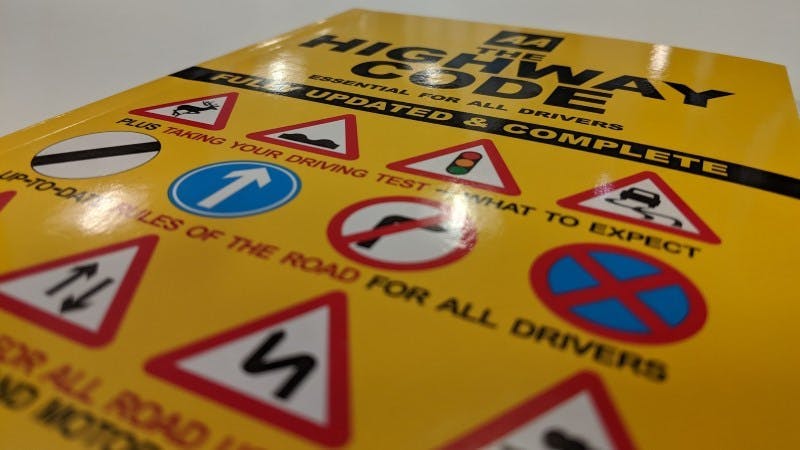
Preparing to take the theory test? We're shining the spotlight on the third topic out of the fourteen used in the DVSA's multiple-choice question bank: essential documents. We'll explain exactly what this topic is, offer example questions and even give you some top revision resources!
Theory Test Topic: Essential documents
The third topic from the theory test is essential documents. It's a pretty self-explanatory topic. It revolves entirely around the documents, paperwork and legal requirements that car owners have. This includes things like your MOT certificate, driving licence and vehicle registration certificate. If you want to pass the theory test, and also make sure that you're legally allowed to be on the road, you will need to know this topic inside and out.
To make things easier for you, we've broken down the theory test topic essential documents into smaller sections. Make sure you read each section carefully—it'll come in handy when you try your hand at our mock tests further below!
Driving licence

In order to drive on public roads, all learner drivers must have a valid provisional licence. They also need to be supervised by someone who is at least 21 years old and has held a driving licence for at least three years. When you apply for your provisional licence (and renew your full licence in the future), it's important that you ensure all of your details are correct. If you change your name or address, for example, you will need to inform the DVLA.
That's not all, though. For obvious reasons, it's vital that your eyesight meets the standards set by the DVLA. You need to be able to read a number plate from 20 metres away (with glasses/contact lenses if necessary). If your ability to do so changes, or your overall health starts to affect your driving, you will need to tell the DVLA ASAP.
Once you've passed the driving test, you'll have a full driving licence, but you'll be on a probationary period for two years. During this time, if you receive 6 or more penalty points, you'll lose your licence. If this happens to you, you'll need to reapply for your provisional and take the theory and practical tests again.
Car insurance
In order to drive on public roads in the UK, you are legally required to have insurance cover—whether you're using your own car or someone else's. If you're caught driving without insurance, you could end up with a fixed penalty of £300 and 6 penalty points. If taken to court, you could get an unlimited fine and be disqualified from driving altogether.
In the event of an accident, depending on your cover type, your insurance will cover the cost of injury and vehicle damage.
There are three main types of car insurance that you can choose from:
- Third-party: covers the cost of repairs and/or injuries for third parties involved in an accident that was caused by you.
- Third-party, fire and theft: covers the above, along with the cost of theft or vandalism to your car.
- Fully comprehensive: covers the above, along with the cost of damage to your own car in an accident.
Third-party is the minimum cover type that you'll need on the road. In most cases, it'll work out cheaper (and give you greater peace of mind) to opt for a comprehensive policy. Once you purchase a policy, you'll be issued a cover note before you receive your insurance certificate.
When you buy an insurance policy, you'll need to pick a fixed excess amount. If you end up making a claim, this excess fee is the amount you will need to pay upfront. Generally speaking, the higher the excess you opt for, the lower your premiums will be. You might also be able to reduce the costs by completing a Pass Plus scheme.
If you're not planning on using your vehicle for a long period of time, you can declare it as off-road and stop insuring it altogether. This process is otherwise known as a Statutory Off-Road Notification (SORN).
If you're stopped by the police, they will ask you to show them your insurance documents (along with your driving licence and potentially your MOT certificate). If you don't have them on you, you'll be given 7 days to show them at your local police station.
Want to know more? Head on over to our driving insurance category!
MOT certificate

An MOT test is an annual test that all vehicles must undergo once they are three years old (or four in Northern Ireland). This test determines how roadworthy your vehicle is and whether or not it meets the UK's environmental standards. If there are issues with your vehicle, you will not be allowed to drive it until they have been seen by a professional.
Once your vehicle has passed an MOT test, you'll receive an MOT certificate which will be valid for one year from the date it was issued. You'll want to pay close attention to this date. If you're caught driving without a valid MOT, you could be fined up to £1,000, end up losing your licence and even have your insurance invalidated. You'll also be unable to tax your car until you've taken your car in for an MOT test.
The only situations in which you can legally drive your car without a valid MOT is when you're taking it to get repaired, or to a pre-arranged MOT test. The emphasis here is on pre-arrange—you can't just drive around and pretend you're taking your car to get an MOT.
Vehicle registration certificate
A vehicle registration certificate (V5C), or a vehicle log book, is something that you will receive when you purchase a vehicle (whether new or second-hand). It will outline who the registered keeper of a vehicle is, along with vital information about the vehicle itself, e.g., its make, model, engine size and modifications. It will also include your own personal details, such as your name and address.
The registered keeper is legally responsible for keeping all of the information in a V5C up to date. So, if your personal details change over time, you will need to update your log book accordingly—and, as mentioned earlier, inform the DVLA. This will also be the case if you make modifications, apply for a SORN, scrap your vehicle or tax your vehicle.
Vehicle excise duty
Vehicle tax, or Vehicle Excise Duty (VED), is a tax for those who drive and park their vehicles on public roads. It is compulsory for almost all drivers on the road to pay tax on their vehicle. Even if you don't have to pay tax, you still have to apply for it. In order to do this, you'll need your vehicle log book and will also need valid insurance and a valid MOT certificate.
There are several situations in which you are legally allowed to cancel your vehicle tax:
- You've sold/transferred your vehicle to someone else
- You have applied for a SORN
- Your vehicle has been scrapped or written off
- You're officially exempt from vehicle tax
- Your vehicle has been stolen
- Your vehicle has been exported out of the UK
Bear in mind that if you cancel a SORN, you will need to immediately insure it, tax it and check that your MOT is up to date.
How to revise essential documents

Now that we've taken you through the essential documents topic, you're that much closer to passing the theory test! That's not to say that we've covered every aspect of essential documents. You'll still need to put in some heavy revision and test your skills against online quizzes and mock tests. To help you get started, we've put together a list of some handy tests:
- Highway Code Tests: Documents Test
- TheoryTest.org: Documents Theory Test
- Mock Theory Tests: Documents
- Driving Test Success: Theory Test Documents
- Theory Test MAX: Essential Documents
Subscribe for driving advice, offers & more
We'd love to let you know about our courses, news and offers via email. You may unsubscribe at any time.
Star Genie Limited trading as PassMeFast. Company number 10093359
Copyright © 2024 owned by Star Genie Limited
PassMeFast, Blue Tower, MediaCityUK, Salford, M50 2ST

